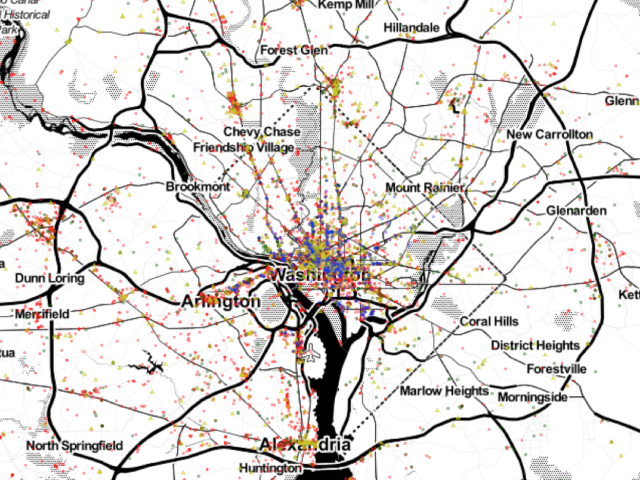
Information accessibility problems include diverse types of human- and system-driven barriers that make it difficult for individuals to access desired information. These issues have been studied in two main streams: (1) a human-centered view based on the understanding of individual-level characteristics such as physical impairment and economic status, and (2) a technology-focused view that emphasizes system-based factors such as the information filtering techniques and interface designs. Beyond human and system factors, however, pre-existing information sources and their material structures can also affect people’s access to desired information. This work proposes a concept of local information landscapes (LIL) to provide an ontological understanding of how the community-level information looks and conceptualizes the material pre-condition of information inequality in a local community as information deserts based on the LIL framework. Then, using this framework, I aim to analyze real-world data such as local event data to demonstrate the impact of local information landscapes on other community characteristics as an important community-level factor.
* We had a brainstorming session on this topic at CSST 2015 (Colorado Springs, CO) as a Catalyst Workshop team where team members were Dr. Brian Butler (UMD iSchool), Dr. Rosta Farzan (U of Pitt, iSchool), Claudia Lopez (U of Pitt, iSchool), and myself. An example showcase of this phenomenon is available at the external link.
* This project is a major topic for my doctoral dissertation.
* I received a Wylie Dissertation Fellowship from the UMD Graduate School with this research proposal (AY2018-19).